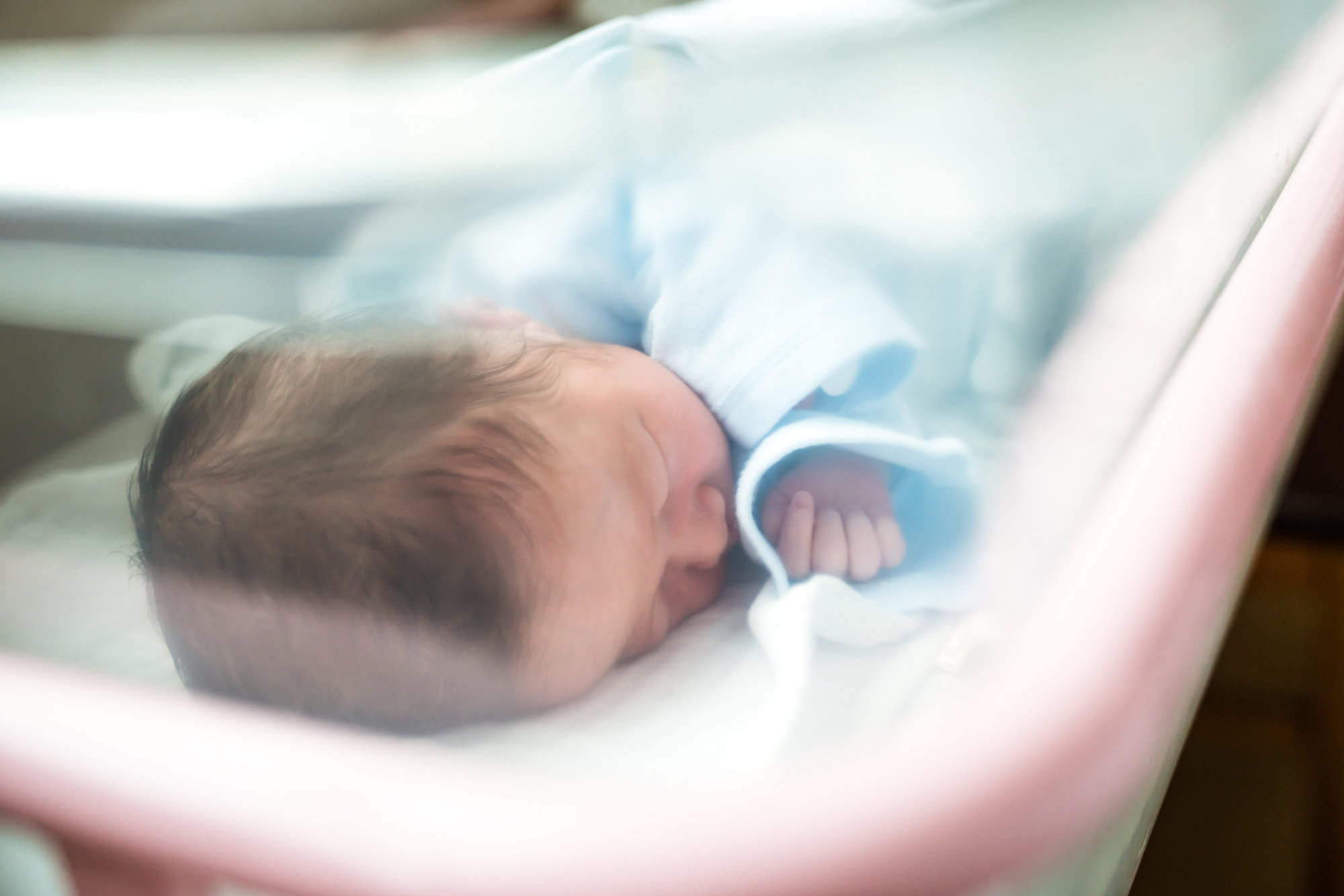
For weeks, the world has been on edge as news of the coronavirus that's sweeping China continues to make headlines. But fueling fears this week is a new report, which claims that a Chinese baby born to a woman with the coronavirus in Wuhan has now tested positive for the viral illness too. The child is the youngest known patient on record to be infected with the deadly strain.
The unnamed baby was born Sunday at Wuhan Children’s Hospital, which sits in the epicenter of the nation's outbreak.
The baby's mother was already experiencing symptoms of the coronavirus before giving birth February 2, and the child was closely monitored and tested as a result, according to the New York Post.
Just 30 hours later, results came back confirming that the infant had also contracted the virus.
The good news is that the baby is now in stable condition, CBS News reports.
The baby was born at a healthy 7 lbs. and is under close medical observation, according to CBS News.
Although the newborn showed no signs of fever or cough (two telltale symptoms of the coronavirus), the baby did experience shortness of breath, which is what first alerted doctors to an issue. Subsequent X-rays of the infant's chest showed clear signs of infection, along with some abnormalities in liver function, state broadcaster CCTV reported.
The case offers the first bit of evidence that pregnant women infected with the virus may be able to pass it on to their unborn children.
And that's a worrisome thought for many.
It's particularly troubling for medical experts, who are still frantically trying to learn more about the virus. According to ABC News chief medical correspondent Dr. Jen Ashton, health experts aren't yet sure of how the coronavirus is transmitted, how contagious it truly is, how long its incubation period lasts, or how fatal it may be. (Currently, the fatality rate is "hovering around 2 to 3 percent," Ashton said, but those numbers could increase.)
Still, that doesn't necessarily mean a baby born to an infected individual will definitely contract the disease.
At least, there's some evidence to suggest that isn't the case. Just last week, health officials in Wuhan reported that another baby was born to a mother with the illness but had tested negative for it.
On January 29, another baby in the region began showing signs of the illness less than two weeks after its birth. Later, the child's nanny was diagnosed with the virus, and several days after that, the child's mother.
“Whether it was the baby’s nanny who passed the virus to the mother who passed it to the baby, we cannot be sure at the moment. But we can confirm that the baby was in close contact with patients infected with the new coronavirus, which says newborns can also be infected,” Dr. Zeng Lingkong, head of the hospital’s neonatal medicine department, told Reuters.
According to the New York Post, experts quoted by CCTV believe the latest infected baby could be a case of “vertical transmission."
Vertical transmission is a term that refers to infections passed from mother to child during pregnancy, childbirth, or in the hours after.
Doctors in China hope the story serves as a warning to others about just how serious the coronavirus truly is.
“This reminds us to pay attention to mother-to-child being a possible route of coronavirus transmission,” Lingkong said.
Some medical experts are questioning whether mother-to-child transmission was really at play here.
"It's more likely that the baby contracted the virus from the hospital environment, the same way healthcare workers get infected by the patients they treat," said Stephen Morse, an epidemiologist at Mailman School of Public Health at Columbia University, who spoke with Business Insider this week. "It's quite possible that the baby picked it up very conventionally — by inhaling virus droplets that came from the mother coughing."
Because the coronavirus is a respiratory virus, Morse explained, it's unlikely it would get transmitted through the blood, such as viruses like HIV. Instead, he stresses that its transmission is environmental.
Still, there's lot we don't yet know about the illness, even as medical experts are working quickly to fill in the gaps.
Though numbers are climbing by the day, nearly 500 people have died of the coronavirus since December.
Thousands more have sought treatment for the illness, which has led to widespread panic in China, where the government rushed to create a special hospital to house victims in an attempt to quarantine the illness.
It's also led to aggressive travel restrictions to and from China — not just in the US but in other countries as well.
Although the coronavirus continues to pose a threat in China, doctors are reminding Americans that the flu threat is actually far greater in the US.
"Last year, we had 34,000 deaths from flu," epidemiologist Brandon Brown of the University of California at Riverside recently told NPR. And that's just in the United States.
In fact, 2020 is expected to be the worst flu season on record, which means getting a flu shot (even if it's late) could prove life-saving.
"Flu vaccination is not a perfect tool, but it is the best way to protect against flu infection," the Centers for Disease Control and Prevention has reported. It can also help greatly reduce the symptoms if you do contract the virus.




